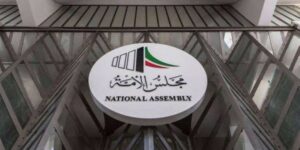
MPs Abdullah Al-Anbai, Hamad Al-Elyan, Muhannad Al-Sayer, Hamad Al- Medlej and Soud Al-Asfour have submitted a bill on amending law number 61/2015 regarding the installation of surveillance cameras in public areas. The bill stipulates adding streets in housing areas, as well as the entry and exit points in public places, to the list of areas where surveillance cameras are installed. According to the bill, the Ministry of Interior should install surveillance cameras in the designated places; while the control monitors should be placed in the police stations in every area.
The ministry must also install big signboards informing the people that the streets are monitored by surveillance cameras. Meanwhile, parliamentarians continue to react to the news published recently by Al- Jarida daily about the government’s supposed discussion of bills on the value added tax (VAT), selective tax and public loan.
MP Hassan Jawhar forwarded queries to HH the Prime Minister Sheikh Ahmad Nawaf Al- Ahmad Al-Sabah about the government program for the years 2023 to 2027, which was submitted to the National Assembly on July 16, 2023. He said the program includes only one legislative requirement related to imposing tax on companies in order to improve the finances of the State and diversify sources of national income. He cited Council of Ministers decision number 895 assigning the finance minister and state minister for National Assembly and Cabinet Affairs to speed up the completion of bills included in the decision, such as the agreement of Gulf Cooperation Council (GCC) countries on value added tax (VAT) and selective tax, which was referred to the Assembly in 2017. He wants to know the rationale behind this assignment even if the bills included in the decision are not in the program of the government. He demanded for clarification of the contradictory statement of the finance minister on Sept 6, 2023 that the priorities of the government are specified in its program. He asked if the finance minister submitted a bill on companies tax in line with the government’s program. He requested for the list of bills that the Council of Ministers discussed and those it decided to expedite completion.
MP Muhannad Al-Sayer asserted that the MPs and citizens are waiting for the government to improve the standard of living, and implement economic and political reforms; but it seems to be more concerned about speeding up the enforcement of international agreements on VAT, selective tax and public loan. He wondered about the position of the government; as every time the MPs take a few steps forward along with the government, the latter puts everything back to square one. He added the government has been conveying negative messages to the citizens. He asserted it took the government 11 years to complete the strategic alternative to the salary scale, but the issue remains unsolved till date.
Addressing HH the Prime Minister, Al- Sayer stated: “You are responsible for the ministers, because they carry out your vision and your program.” He argued the public support granted to Sheikh Ahmad Al-Nawaf is temporary and the people of Kuwait are not hypocrites, as they give support and then wait for the official approach to match their demands. “Their position will change once they realize that the government is targeting their pockets; instead of improving their economic, social and political conditions. This is not the right time to impose VAT and selective tax; because the people are already suffering.
Moreover, the government has not taken any step toward economic reform. This means the government will collect the tax, but the collected amount will be depleted and squandered.” He reminded HH the Prime Minister that his predecessors also obtained public support, but lost it when the people realized that the required reform was not implemented. He warned that “since the issue concerns the citizens’ interests, the lawmakers will no longer act as ‘doves of peace’.”
MP Abdullah Al-Mudhaf expressed disappointment over the intention of the government. He stressed that the citizens are already paying tax in the form of car repair expenses, considering their cars were damaged due to the worsening condition of roads. He added the citizens pay indirect tax whenever they are forced to avail medical and educational services offered by the private sector due to the poor quality of services in public hospitals and schools. He went on to say that citizens pay tax in the form of house rent, considering the Constitution guarantees their right to free housing. “If the government wants to increase the budget, there are many alternatives, such as developing oil revenues,” he stressed. He added the government must stop the squandering of millions of Kuwaiti dinars like the question able distribution of agricultural plots, as well as recover stolen public funds.
Source- Arab Times.



